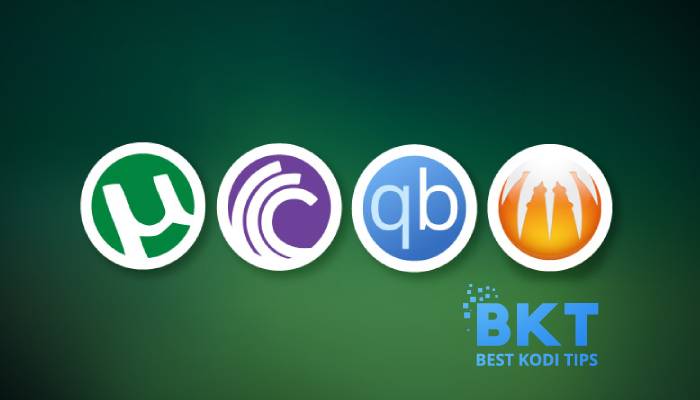Over 300 million folks across the globe use torrents, but that popularity shouldn’t be mistaken for safety.
There’s no denying that torrents are fast, reliable, and arguably the most effective means to download large files from the internet. However, the bad news is that they expose users to risks that otherwise, they might not encounter.
Officially, a torrent is merely a file that contains metadata that’s related to a song, movie, photo, or software downloaded from a P2P network. They are very unique as they’re not maintained or distributed by torrent sites; instead, the task is on users of the peer-to-peer networks.
Once a file has started to download, the user then immediately starts to “seed” – or ideally providing the downloaded file for upload to the community (other P2P participants). That way, torrent downloads are fast and convenient.
So, want to climb into the P2P bandwagon? Not too fast!
First, it could be wise that you understand all the risks that are involved with using torrents. Here are some of the risks;
Risks of Using Torrents
Data safety
Once you upload a torrent, it simply opens the door to your PC’s other store data. If you’re a business owner, then that claim can’t be stressed enough the extent of the risk it poses to your business. Think about your employee files, payroll information, and a plethora of other valuable business data that might be compromised.
However, that could be only possible if that data is kept in one folder as the torrent that you’re uploading. The idea here is simple; files downloaded via torrent sites are passed to other users, and by default, they are stored in the folder that will allow them to be shared.
Therefore, not unless you store your essential business information in the same folder for torrent downloads; your company data could be secure.
However, for the sake of your safety, it’s wise that you turn off the sharing option for personal folders.
Malware Risks
Malware vulnerability is arguably the most common risk that you’ll be facing when using torrents. The worst part of it is that you’ll never have any idea that the file you download could be containing a virus.
Your computer could be playing an instrumental role in running your business; therefore, downloading malicious files could easily bring your company to the ground.
So, what should you do?
Apparently, there’s only one sure way out of it: once you download a legal torrent file, always ensure that you scan it with an antivirus program to ascertain whether the file contains infected malware content.
Moreover, some torrent interface programs offer plug-ins that help by automatically scanning incoming files.
The trouble with the Authority
With torrents, most of the torrent files mostly contain copyrighted content, which spells trouble if you try to obtain such material. This is where legal troubles begin!
Torrenting itself is legal; however, sharing copyrighted material makes it illegal. Furthermore, the chances that the one sharing illegal files will be caught are even more significant than ever before.
For instance, the music and film industry has employed agencies (copyright trolls) that survey the internet looking for violators. The process is made even more straightforward as they only trace the IP address of the uploaders. The penalties could be more significant to bear for others as they range from internet service suspension to about ten years in prison or even over $250,000 in fines.
ISP Throttling and Monitoring
Throttling is a name assigned to the practice that your Internet Service Provider (ISP) uses to restrict or limit the download/upload speeds of specific programs or protocols – or generally your overall internet speed.
If your ISP catches you torrenting, they’ll start off by sending you a nasty letter. If it doesn’t work, they now resort to bandwidth throttling, account termination or suspension, or huge amounts of fines.
Sometimes, they can restrict your download speeds on specific ports. Usually, the ones you use often; however, some ISPs will limit your traffic.
Vulnerability to Hacking and Cyber-Attacks
Many folks don’t realize that your IP address is fully displayed for the world to see once you use torrents. Ideally, every peer that you connect to in the torrent swarm will be able to see your IP address clearly. You simply open the door for prying eyes.
All that a hacker needs is your IP address to point to your virtual location, and if you don’t have a firewall or anti-virus protection, your chances of stopping even a lowly skilled hacker are close to none.
Therefore, your entire identity is at risk; personal financial information, passwords, and other vital; data taken is at risk. Once the hackers steal your information whose knows what they can do next? In most cases, they can use it to their advantage.
Nevertheless, using torrents can expose you to serious risks that you definitely would not want in the first place. However, given the fact that it’s one of the best ways to get huge files for free, it can be hard to ignore using it.
Therefore, if you want to use torrents, there’s only one better way to protect yourself – using a reliable Virtual Private Network (VPN). They help by providing anonymous torrenting. When connected with a secure VPN, you get a fake IP address that won’t be used to trace back to you.
Perhaps, if you need a quick recommendation of the best VPN to use, then you might consider connecting using ExpressVPN or NordVPN. Your privacy online should always be your priority, take it into your own hands and do your things privately.















Comments